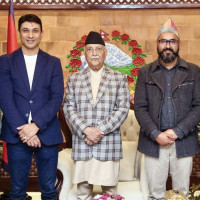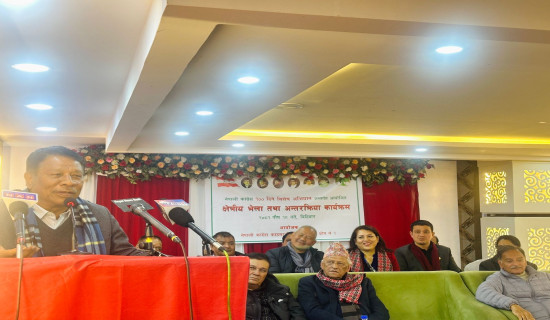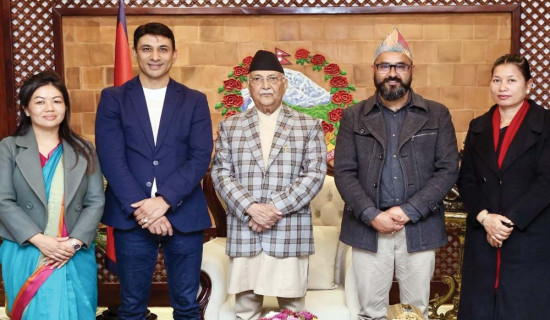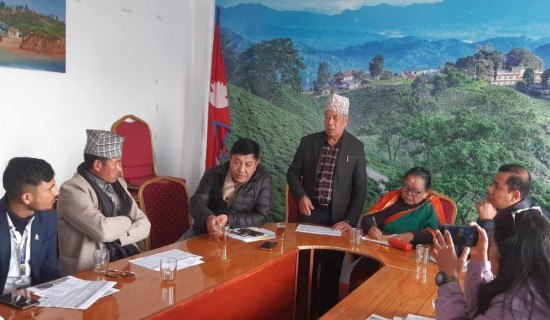- Thursday, 2 January 2025
A Dying tradition of playing drums during Dashain
By Dhirendra Prasad Shah,Janakpur, Oct. 18: In ancient times, there was a tradition of announcing information by beating drums. Although the development of information technology has halted this practice, the tradition of playing drums to announce the arrival of Dashain in households remains unchanged.
However, due to a self-imposed ban by the community that traditionally played the drum, this year too, they did not play the drums during Dashain.
Playing drums during Dashain was a tradition and a cultural practice. However, the Dalit movement strongly opposed this tradition and this tradition was discontinued.
The ban has been continued this year as well. The art and skill of playing drums used to provide a livelihood for the Ram (Chamar) community throughout the year. By playing drums for the 10 days of Dashain, they would earn enough to sustain themselves for the entire year. By playing drums, during the 10 days of Navaratri, a family of five would gather enough grains, lentils, oil, money and other essential items to sustain themselves for the year.
As they did not play the drum, the Ram (Chamar) community in the Tarai region has once again been deprived of this income.
Apart from Dashain, drum playing, which is connected to art, culture and traditional caste-based occupations, is still practised in other celebrations and auspicious events. Drums are still played at weddings, sacred thread ceremonies, folk dances, Chhath, Tihar, naming ceremonies and even at Muslim funerals.
They are not allowed to play drums during Dashain, said Laxman Ram.
He said that although they were prepared to play drums this year, caste leaders came to their home and warned them that if they played drums, they would face social ostracism.
The Ram community has a tradition of purchasing the right to play the drums in a specific neighbourhood. In such neighbourhoods, Rams from other neighbourhoods are not allowed to play the drums, Laxman added.
Sitabi Prasad Sah, 85, said that during Ghatasthapana (the first day of Dashain), early in the morning or the evening, the elders of the Chamar caste would walk around the neighbourhood, playing loud drums (nagara) and children would follow them in excitement.
However, now such sights and sounds are becoming a thing of the past. He added that after playing the drums for 10 days during Dashain, they would come to each household to collect their offerings, which included rice, lentils, potatoes, oil, money and other materials.
These collected items were too many to carry by hand, so they had to load them onto carts or bicycles to take them home, and this provided subsistence for their families throughout the year.
In the villages and towns of Madhes Province, elderly leaders of the Chamar caste are now too old to walk, and the younger generation has not embraced this tradition. As a result, the cultural practice of drum playing has declined in these villages and towns.
According to Sifaita Ram Chamar of Janakpur, about a decade and a half ago, the Dalit movement strongly opposed the practice of skinning dead animals and playing drums during Dashain. Fines were also imposed.
According to Muneshwor Ram, an elder leader of the Chamar caste, the younger generation of the Chamar community, which has some literacy, has started going to India, Qatar, Malaysia and other Arab countries for employment. As a result, the ancestral tradition and profession of playing drums are fading away.

















